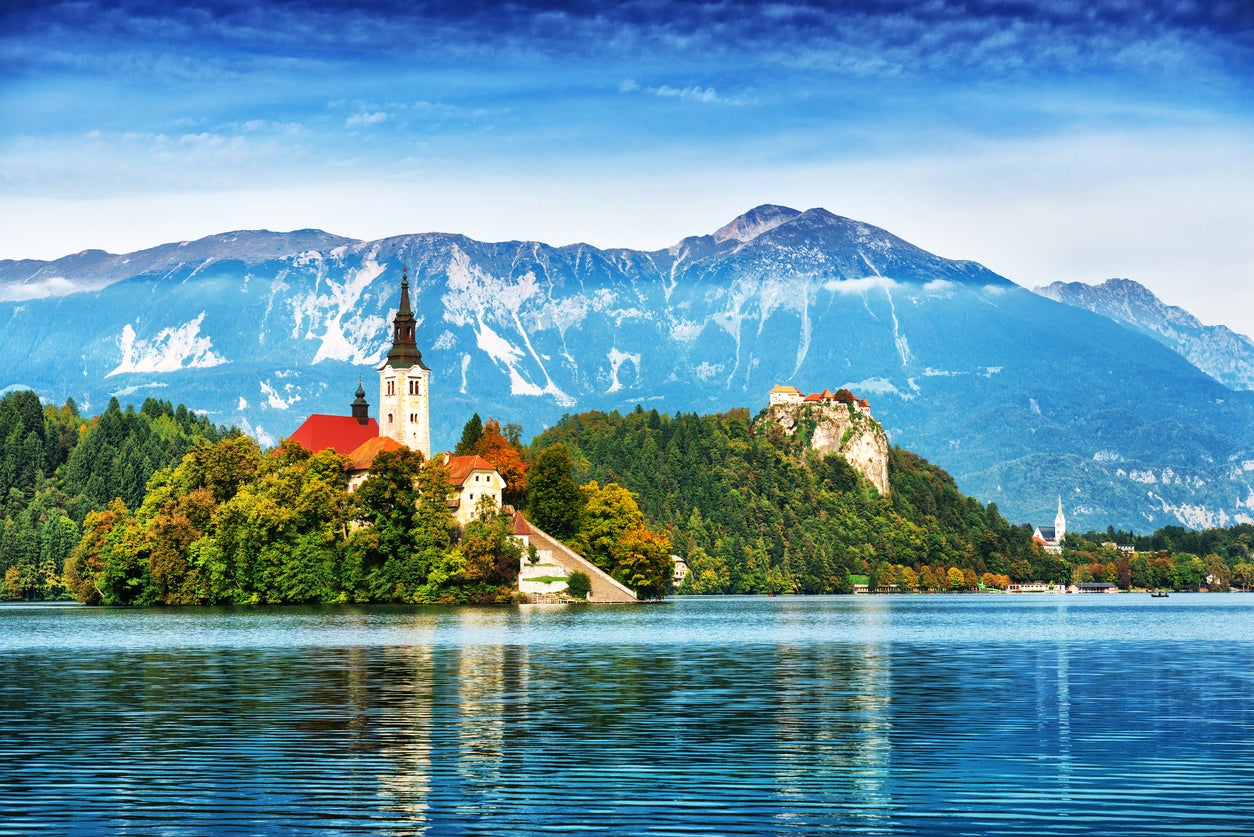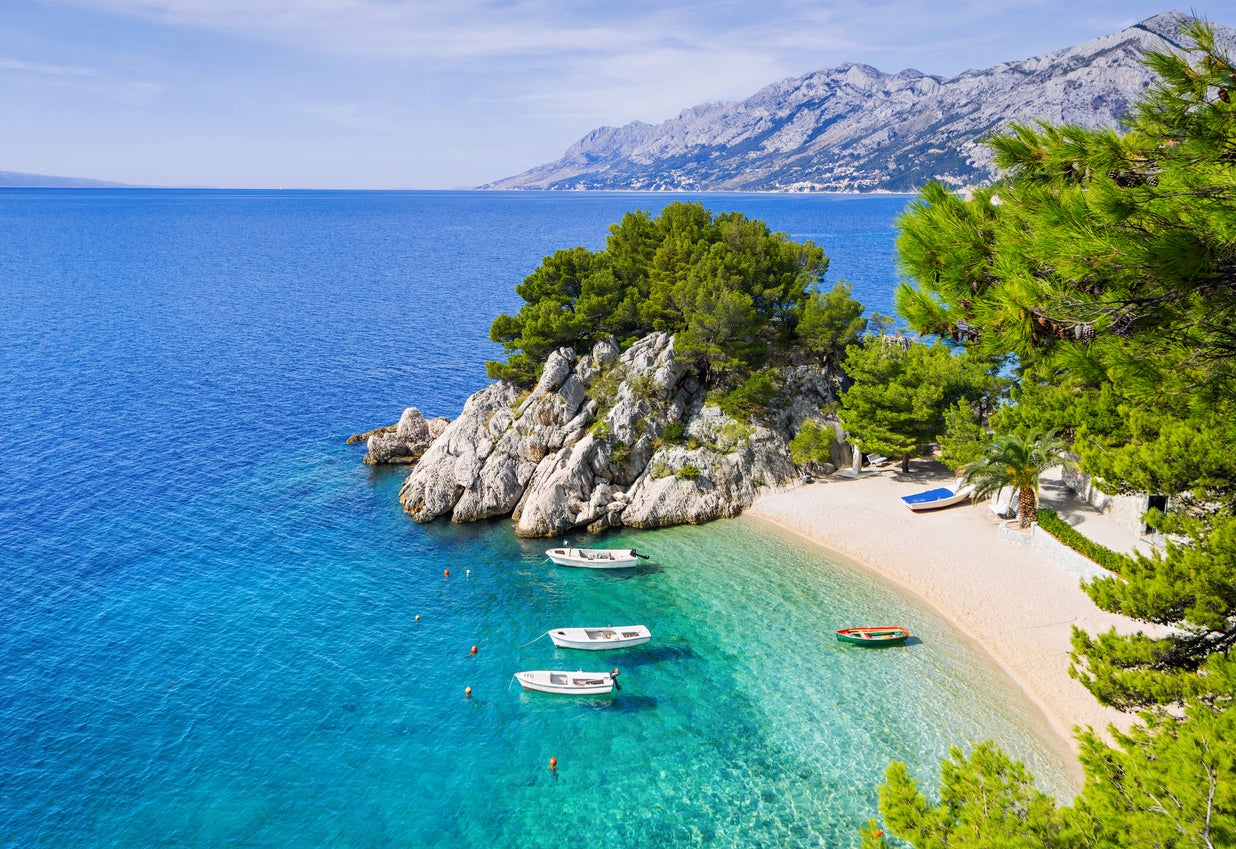
Croatia announced on 1 May that it was dropping all remaining Covid travel restrictions, joining a growing pack of European countries that have done away with all testing and vaccine passport rules for holidaymakers.
If you’re looking for the simplest possible holiday, these destinations - although not all the usual big hitters for summer holidays - might be your best bet.
All of these countries have now removed both entry requirements such as tests and proof of vaccination, and most of their rules on the ground (with masks recommended or advised in certain spaces, such as on public transport).
Or opt for a staycation, if you’re in the UK - the UK has also removed its Covid-related restrictions in spring 2022.
Here are your faff-free travel options, regardless of vaccination status:
Ireland
The UK’s emerald neighbour scrapped its remaining Covid-related rules for international visitors in early March, including eliminating its passenger locator form. Now travellers to the country, regardless of vaccination status, will have no pandemic-related admin to contend with before departure or on arrival. The Irish government announced: “From Sunday 6 March 2022, travellers to Ireland are not required to show proof of vaccination, proof of recovery or a negative PCR test result upon arrival. There are no post-arrival testing or quarantine requirements for travellers to Ireland.”
Denmark
This Scandi city-break favourite dropped the majority of its Covid rules back in February, but on Monday night eased restrictions even for unvaccinated people coming from non-EU countries - before, they’d needed a pre-travel test. However, authorities warned that they reserve the right to put restrictions on countries where new variants are detected. “As a part of this contingency, the so-called ‘handbrake’ can be activated if concerning variants emerge. The handbrake is not activated for any countries at this time,” said a government statement.

Norway
Norway was one of the first to axe all of its Covid restrictions in one fell swoop, back on 12 February. “From Saturday, 12 February 2022, you can travel to Norway without having to worry about anything more than having a good time!” the tourist board posted on its website. Post-Brexit, Britons do have to watch out for the current passport expiry rules - outlined here by Simon Calder - but they can visit countries such as Norway in the Schengen Area for up to 90 days in any 180-day period. From the beginning of 2023 or whenever the ETIAS scheme is up and running, Brits will require an ETIAS visa for Norway.
Iceland
Like Norway, Iceland was quick to drop the entirety of its Covid restrictions on 25 February in a bid to tempt back tourists. “All official epidemiological measures due to the Covid-19 pandemic will be lifted, both domestically and at the border,” the government said in a statement. “This eliminates all rules on restrictions on gatherings and schooling, as well as the requirement for isolation of those infected with Covid-19.” This means no tests or quarantine for anyone, vaccinated or unvaccinated.
Poland
One of the most recent to join this list, Poland scrapped all entry requirements on Monday, 28 March, following a decision to remove the mandatory mask rule on 23 March. Masks now are only required in hospitals and healthcare institutions. The country had previously been fairly strict, requiring proof of full vaccination and a pre-travel test. Now you can explore cities such as Warsaw and Krakov, test- and mask-free.
Montenegro
In mid March, Montenegro removed its Covid-related entry requirements, ending the demand for proof of vaccination or a negative test result on arrival. While slightly under the radar, Croatia’s neighbour has been slowly building a profile as a travel destination these past few years, and with Croatia holding firm to its “vaccination or test” rule, as well as a passenger locator form, some tourists may be tempted here instead.

Hungary
As of 7 March, travellers have no longer needed to test, show proof of vaccination or quarantine when holidaying in Hungary. Gergely Gulyás, the prime minister’s chief of staff, announced the move at a government briefing. Like all EU countries, Britons need to watch out for passport expiry rules, making sure theirs is valid for at least three months after the day they plan to leave. Hungary is a great choice for spring, be it the foodie, trendy capital Budapest or further afield, before temperatures ramp up in summer.
Lithuania
Visited by our travel correspondent Simon Calder this week, Lithuania announced in late February that it would no longer require visitors from certain countries - including the UK, those within the EU and EEA - to provide proof of vaccination a test result or fill in a health form. This is regardless of vaccination status. However, Foreign Office advice states: “On 24 February 2022, Lithuania announced a State of Emergency, in response to Russian military action in Ukraine.”
Slovenia
Slovenia dropped all of its remaining travel restrictions - bar a passenger locator form - at the end of February. “There are no longer any Covid-19 restrictions for entry to Slovenia,” read a statement from the tourist board. “The recovered/vaccinated/tested condition has been removed, making Slovenia an accessible, attractive destination for UK and Ireland travellers looking to experience incredible scenery, farm-to-fork cuisine, historic architecture, hiking trails, and much more.”
Romania
Increasingly popular with indie travellers and hikers prior to the pandemic, Romania lifted all remaining Covid restrictions on 9 March. This included the use of vaccine passports and the requirement to wear masks both indoors and outdoors. It coincided with the government’s decision not to extend a nationwide state of emergency that had been in place for almost two years. However, Romania is one of the least-vaccinated countries in Europe, with just under 42 per cent of the population choosing to take up two doses of the Covid-19 vaccine thus far.

Madeira
Madeira has been a hit with restriction-averse travellers throughout the pandemic, with spells of being one of the more relaxed destinations to visit in Europe. Since early March it has no longer required tests, proof of vaccination or isolation from either vaccinated or unvaccinated travellers - though some mask rules do remain on the ground. “There are no restrictions on the entry of travellers at the airports, ports and marinas of the Autonomous Region of Madeira,” the statement of Madeira Regional Tourism Board, though it recommends that all visitors fill in its “Epidemiological Survey” on the Madeira Safe website.
Sweden
This Scandi spring and summer break favourite dropped the remainder of its Covid rules on 1 April. Non-EU travellers now no longer need to show proof of vaccination or a test to visit the delights of Stockholm, Gothenberg and Malmö. “The government has decided not to extend the entry ban from third countries,” said minister for justice and home affairs, Morgan Johansson. “This will make it much easier for everyone who has been prevented from coming to Sweden in recent years due to the pandemic. It had earlier relaxed its restrictions for EU-based travellers only, on 9 February. As with all Schengen Area countries, check that your passport is still valid for three months after you leave and make sure it gets stamped on entry and exit.
Latvia
Also as of 1 April, travellers from the EU, European Economic Area (EEA) and the UK no longer need to show either proof of vaccination or a test result when entering Latvia. Travellers from outside of these areas do still need to show one of these (with children under 12 exempt). However masks remain common on the ground in Latvia, which is popular for its affordable capital, Riga - with some types specified: the tourist board website says “Medical masks or FFP2 respirators without a valve should be used on public transport, except for taxis and other commercial passenger transport.”

Moldova
Europe’s least-visited country - often forgotten outside of the Eurovision Song Contest - lifted its Covid restrictions on 16 March. No vaccine certificate, test or other documentation is required to enter the country. which has pretty monasteries, a great value capital in Chisinau, and a boutique wine scene. Not to mention European bison grazing around its rural hiking trails.
Czech Republic
Travellers to Prague and the wider Czech Republic no longer need to take a test or fill in a locator form, regardless of vaccination status. The country’s Ministry of Interior announced, “As of 9 April 2022, the protective measures regarding the conditions of entry into the Czech Republic in relation to the epidemic of Covid-19 have been suspended.” The capacity limits on venues such as museums has also been lifted, but FFP2 facemarks are still mandatory on public transport, as well as in hospitals and pharmacies.
Croatia
Increasingly a contender for the Med-loving crowds who flock to Italy’s coast and Greece’s islands, Croatia did away with its remaining Covid rules on 1 May. Previously, holidaymakers had to show either proof of vaccination or a negative test results on arrival, as well as filling in a passenger locator form. But from May onwards, travel to the Dalmatian coast, pretty islands and beyond is pleasingly friction-free - as with all Schengen Area countries, do look out for the latest post-Brexit rules regarding length of stay and passport expiration dates.

Vietnam
In mid May, Vietnam became the first country in Asia to scrap all Covid-19 travel and entry guidelines for travellers arriving by air - regardless of vaccination status. With the new rules coming in from 15 May, holidaymakers arriving from the UK for up to 15 days can simply arrange a visa waiver online, making sure their passport is valid for six months from their date of arrival. (Previously visitors had to take a pre-travel PCR test or quarantine on arrival.) Travellers arriving by road, rail or sea still need to take a PCR test on arrival, however - self-isolating until they receive a negative result.
Israel
Israel dropped all of its remaining Covid travel rules - including proof of vaccination, pre-travel tests and quarantine - for all travellers on 21 May. This was an especially big change, as previously holidaymakers had to test before and after travel to the country. “This is the news we have been waiting for, for more than two years,” said Sharon Ehrlich Bershadsky, director of the Israel Government Tourist Office. “With Israel joining many other countries in dropping all Covid restrictions, I am hopeful the travel industry has now reached a crucial milestone in this post-pandemic world.”







